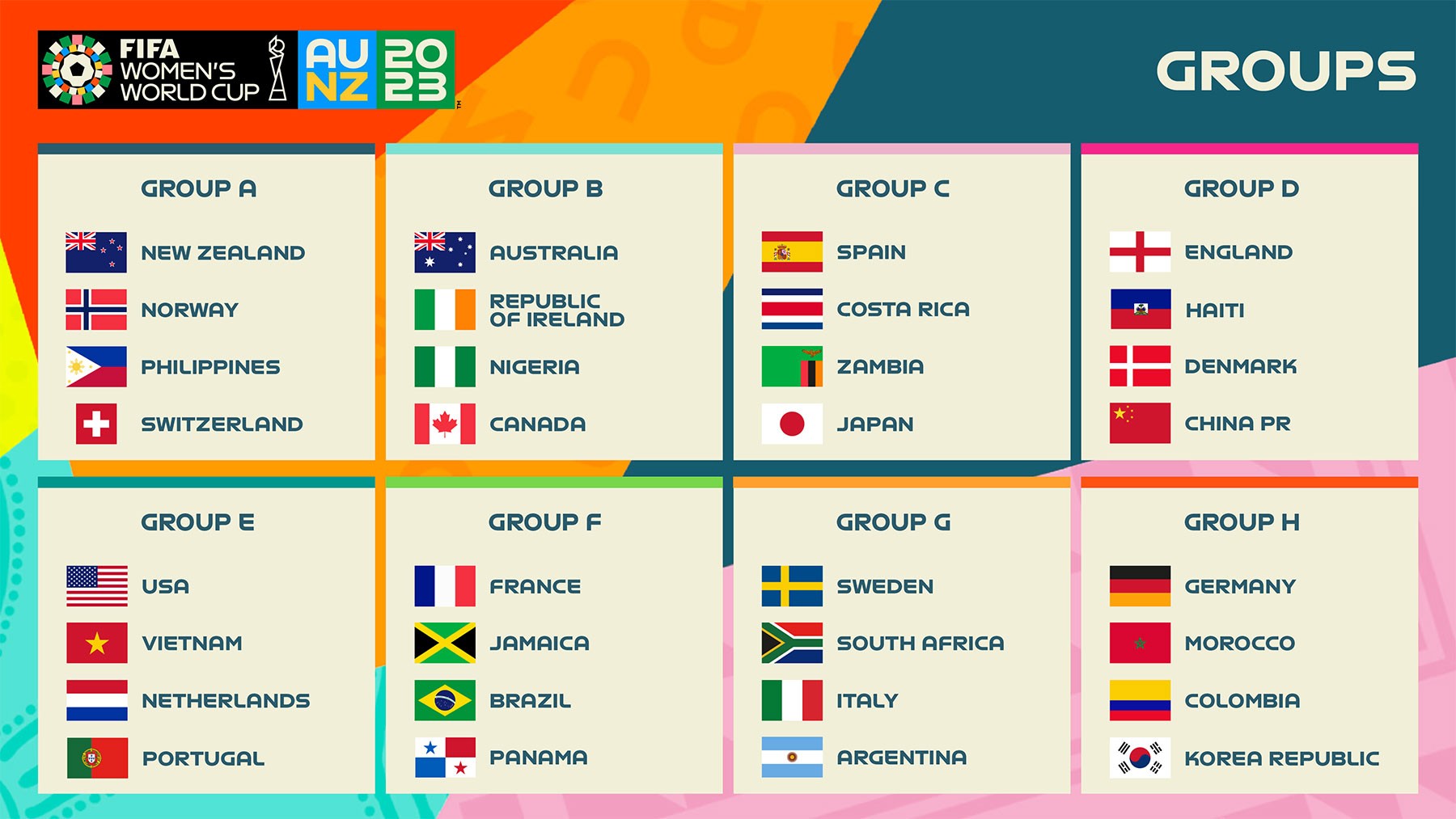FIFA Women’s World Cup Australia and New Zealand 2023
This coming July and August, the FIFA Women’s World Cup Australia and New Zealand 2023 will be the biggest single-sport sporting event ever for women’s football. The tournament takes place from 20 July to 20 August and features an expanded format of 32 nations participating. It also marks Canada’s eighth consecutive participation at the FIFA Women’s World Cup™ since 1995.
“It will be the biggest, greatest FIFA Women’s World Cup that there has ever been,” said Bev Priestman, Canada Soccer’s Women’s National Team Head Coach.
The format begins with 32 nations in eight groups of four competing in a round-robin series. Canada’s group consists of Nigeria, the Republic of Ireland and co-host Australia. The top two nations from each group move forward to the knock-out stage beginning with the Round of 16 after which each the winners in each stage advance to the Quarter-Finals from 11-12 August, the Semi-Finals on 15 and 16 August, and then the Final on 20 August.
“I just can’t wait for that opening match to kick off,” said Priestman. “We still have some growth to do before the FIFA World Cup and it is important that we are ready to kick off in that opening match when we get to Australia. For us, we are doing everything that we can to make that push.”
Canada will face Nigeria on Friday 21 July in Melbourne, Republic of Ireland on Wednesday 26 July in Perth, and Australia on Monday 31 July in Melbourne. All three matches will be broadcast live on TSN and RDS. Fans will find extended coverage for the matches across Canada Soccer’s digital channels on Facebook, Instagram, Twitter, and YouTube featuring the hashtag #CANWNT.
Beyond Greatness, this year’s tournament aims to unite and inspire people around the world through the power of the FIFA Women’s World Cup and women’s football. The tournament will feature the world’s top players competing for the greatest prize in women’s football.
In seven previous appearances, Canada have reached the knockout stage three times and have finished as high as fourth place at USA 2003. Taking place quadrennially, previous FIFA Women’s World Cup winners are USA (1991, 1999, 2015, 2019), Norway (1995), Germany (2003, 2007) and Japan (2011).
Canada were hosts of the tournament in 2015 and drew a record-setting crowd, generated nearly half a billion dollars in economic impact, and attracted a worldwide television audience of 750 million viewers. By drawing 1,353,506 cumulative spectators across 52 matches, the FIFA Women’s World Cup Canada 2015 set both a record for the competition as well as a record for any FIFA competition other than the men’s FIFA World Cup. The tournament averaged 26,539 spectators per match, with seven matches recorded over 50,000 spectators.
CANADA SOCCER’S WOMEN’S NATIONAL TEAM
Canada are Olympic champions (Tokyo in 2021), two-time bronze medal winners (2012 and 2016), and two-time Concacaf champions (1998 and 2010). In all, Canada have participated in seven consecutive editions of the FIFA Women’s World Cup™ (1995 to 2019) and four consecutive editions of the Women’s Olympic Football Tournament (2008 to 2021). At Tokyo 2020, Canada Soccer’s Women’s National Team became the first Canadian team to win three consecutive medals at the Summer Olympic Games and just the third nation in the world to win three medals in women’s soccer.
Canada Soccer’s Women’s National Youth Teams, meanwhile, have won four Concacaf youth titles: the 2004 and 2008 Concacaf Women’s Under-20 Championship, the 2010 Concacaf Women’s Under-17 Championship, and the 2014 Concacaf Girls’ Under-15 Championship. Canada have qualified for eight editions of the FIFA U-20 Women’s World Cup (including a silver medal at Canada 2002) and all seven editions of the FIFA U-17 Women’s World Cup (including a fourth-place finish at Uruguay 2018).
